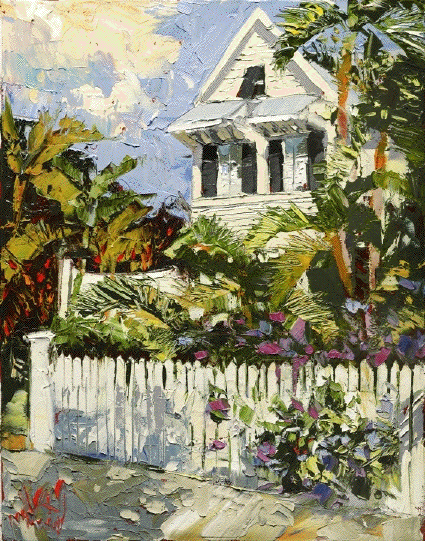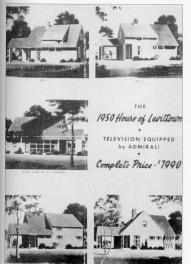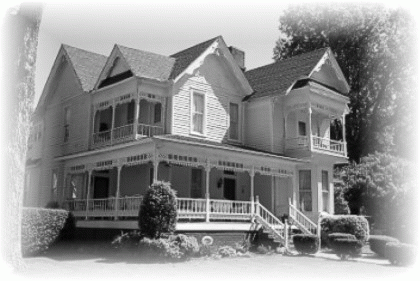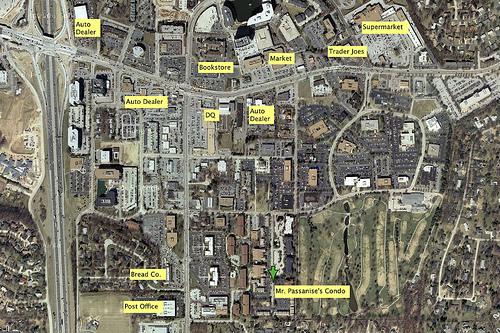|
 Day 23 Personification Day 23 Personification
Personification
is a trope in which abstractions, animals, ideas, and inanimate
objects are given human character, traits, abilities, or reactions.
Personification is particularly common in poetry, but it appears
in nearly all types of artful writing.
When discussing the ways that animistic
religions personify natural forces with human qualities, scientists
refer to this process as “anthropomorphizing,” sometimes
with derogatory overtones.
A special sub-type of personification is
prosopopoeia, in which an inanimate object is given the
ability of human speech.
Apostrophe
(not to be confused with the punctuation mark) is a special type
of personification in which a speaker in a poem or rhetorical
work pauses to address some abstraction that is not physically
present in the room. (Notes from Dr. Kip Wheeler.)
John Ciardi uses personification to embody
a special kind of homesickness, which yearns not so much for
a place, but rather for times past, and for lifestyles gone.
He explored these hungers in his poem, “Talking Myself to
Sleep at One More Hilton.” The two yearnings, one physical,
the other more elusive, are often so intertwined that it is hard
to see the boundaries: one sharpens the pain caused by the other.
(Adapted from This Old House by the Lake by Judith Petres
Balogh.)
|
S
5
10
15
20
25
30
35
40
45
50
|
Talking Myself to Sleep at
One More Hilton
by John Ciardi
I have a country but no town.
Home ran away from me. My trees
ripped up their white roots and lay down.
Bulldozers cut my lawn. All these
are data toward some sentiment
like money: God knows where it went.
There was a house as sure as time.
Sure as my father’s name and grave.
Sure as behave and misbehave.
Sure as lamb stew. Sure as sin.
As warts. As games. As a scraped shin.
There was a house, a chicken run,
a garden, a guilt, a rocking chair.
I had six dogs and every one
was killed in traffic. I knew where
their bones were once. Now I’m not sure.
Roses used them for manure.
There was a house early and late.
One day there came an overpass.
It snatched the stew right off my plate.
It snatched the plate. A whiff of gas
blew up the house like a freak wind.
I wonder if I really mind.
My father died. My father’s house
fell out of any real estate.
My dogs lie buried where time was
when time still flowed, where now a slate
stiff river loops, called Exit Nine.
Why should I mind? It isn’t mine.
I have the way I think I live.
The doors of my expense account
open like arms when I arrive.
There is no cloud I cannot mount
and sip good bourbon as I ride.
My father’s house is Hilton-wide.
What are old dog bones? Were my trees
still standing would I really care?
What’s the right name for this disease
of wishing they might still be there
if I went back, though I will not
and never meant to?—Smash the pot,
knock out the windows, blow the doors.
I am not and mean not to be
what I was once. I have two shores
five hours apart, soon to be three.
And home is anywhere between.
Sure as the airport limousine,
sure as credit, sure as a drink,
as the best steak you ever had,
as thinking—when there’s time to think—
it’s good enough. At least not bad.
Better than dog bones and lamb stew.
It does. Or it will have to do.
|
|
| |
|
|
| |

Questions for Discussion:
- What happened to the speaker’s birthplace?
How do you know?
- What happened to the neighborhood in which
the speaker grew up? How do you know?
- At present, what position does the speaker
of this poem occupy in society? How do you know?
- What is the speaker’s attitude toward
the life he is now leading, as compared with the life of his
childhood? How do you know?
- Discuss the poet’s use of personification.
Cite examples.
- Discuss the poet’s use of repetition.
Cite examples.
- Explain the significance of the title.
- “In my Father’s house are many mansions,” Jesus said (John 14:2). How does knowledge of this quote make
line 36 ironical?
- “Country” is one of the central
concepts developed in the poem, along with the parallel concepts
of “town” and “house.” How has the speaker’s
understanding of each concept changed as he has matured? How
do you know?
- In both “Talking Myself to Sleep
at One More Hilton” a mature man looks at his life now and
compares it with his childhood. In a thoughtful and well-organized
composition, compare and contrast the two viewpoints.
|
|
| |
|
|
| |
Download a handout
with more poems by John Ciardi. |
|
Your Turn: Even
teenagers feel homesickness or nostalgia for the remembered past.
Locate a photograph of a place that was special to you when you
were younger, or sketch the place. Write your own reflection
of how the place, the times, and you, too, have changed.
|
 Day 23 Personification
Day 23 Personification


